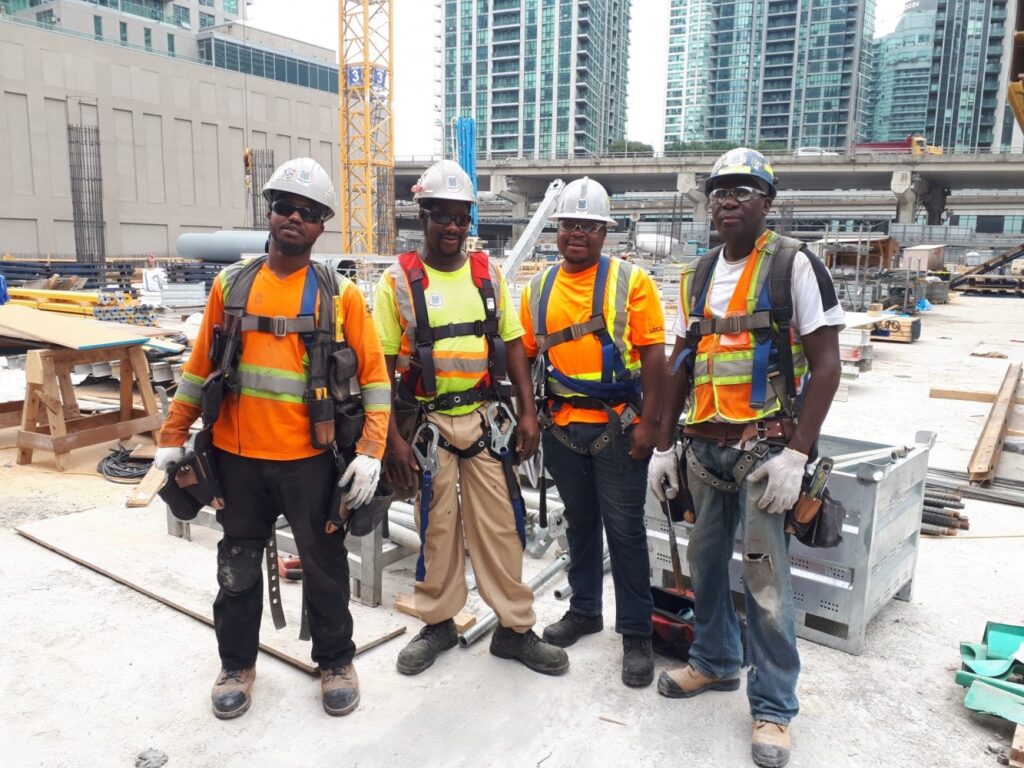To address Canada’s housing shortage, the federal government is expanding a small pilot project that will offer permanent residency to undocumented construction workers who already work underground in the sector here.
On Friday, the government announced it was doubling the annual number of places available in the scheme from 500 workers – plus their dependents – to 1,000 as part of its plan to alleviate the craft labor shortage.
Potential applicants must first identify themselves to the Canadian Labor Congress, which pre-screens qualified candidates and passes them on for final assessment by immigration officials. Eligible candidates have until January 2, 2024 to apply.
“This pilot program is a significant step forward in addressing the critical labor shortage in the greater Toronto area by supporting stability in the construction industry and moving workers out of the informal economy,” Immigration Secretary Sean Fraser said in a statement.
“By providing regular routes for undocumented migrants, we not only protect workers and their families, we protect the Canadian labor market and ensure we can retain the skilled workforce we need to grow our economy and build our communities .”
Ontario had 28,360 construction jobs waiting to be filled in the second quarter of last year, up from 20,895 in the same period in 2021.
Last November, Fraser raised eyebrows when he unveiled Canada’s multi-year immigration plan, which is expected to bring 465,000 new permanent residents in 2023, 485,000 in 2024 and 500,000 in 2025, despite concerns about a looming recession.
While a majority of Canadians welcome a higher rate of immigration, some worry about the country’s ability to accommodate so many more people in a tight rental and housing market, fearing the measures could further push up housing costs.
“We are pushing people into regions that have more capacity to accommodate newcomers. It’s no coincidence that we’re talking about establishing stronger regional pathways,” Fraser said at the time, referring to immigration programs that encourage newcomers to settle in smaller, rural communities.
“We won’t solve this problem if we don’t build more houses. Realistically, we need to use the new flexibilities that will come into effect in 2023 to make targeted (immigration) draws for people who have the skills to build more homes.”
It is estimated that up to 500,000 undocumented people live in Canada. Many work in precarious and often exploitative jobs in construction, cleaning, nursing, food processing and agriculture.
The vast majority of undocumented residents came to Canada legally, only to later lose their status over problems with student visas, temporary work permits or asylum applications, advocates say.
These problems have arisen from an increasingly temporary immigration system, with many residents struggling to extend short-term permits and obtain permanent residency.
A priority mandated by Prime Minister Justin Trudeau’s Fraser was to explore more avenues to legalize undocumented residents.
The Immigration Service has completed research and advice for a broader regularization program based on the Construction Workers Pilot. The cabinet is currently weighing various options for a final plan, the star has learned.
“Unstatus workers are vulnerable to exploitation and abuse by employers, and they and their families live with limited access to education, health and welfare programs,” noted Bea Bruske, president of the Canadian Labor Congress, in a press release.
“The expansion of the non-status construction workers in the GTA initiative for 2023 will help more vulnerable workers and their families during these uncertain times.”
Only undocumented construction workers residing in the Toronto, Durham, Halton, Peel and York areas qualify under the Builders Pilot Scheme.
To be eligible, an applicant must have:
- You originally entered Canada legally as a temporary resident and have resided in Canada for at least five years;
- Proof of Canadian income tax payment;
- A family member living in Canada who is a Canadian citizen or permanent resident, or a spouse or child in Canada; and
- No prior offenses that would make her illegal in Canada, other than an immigration law violation for overstaying in the country.
Job categories that qualify for the program include: tradesmen and skilled workers in transportation and equipment; maintenance and equipment operation; private and commercial installers and servicers; heavy machine operator (except crane); and builders and labourers.



